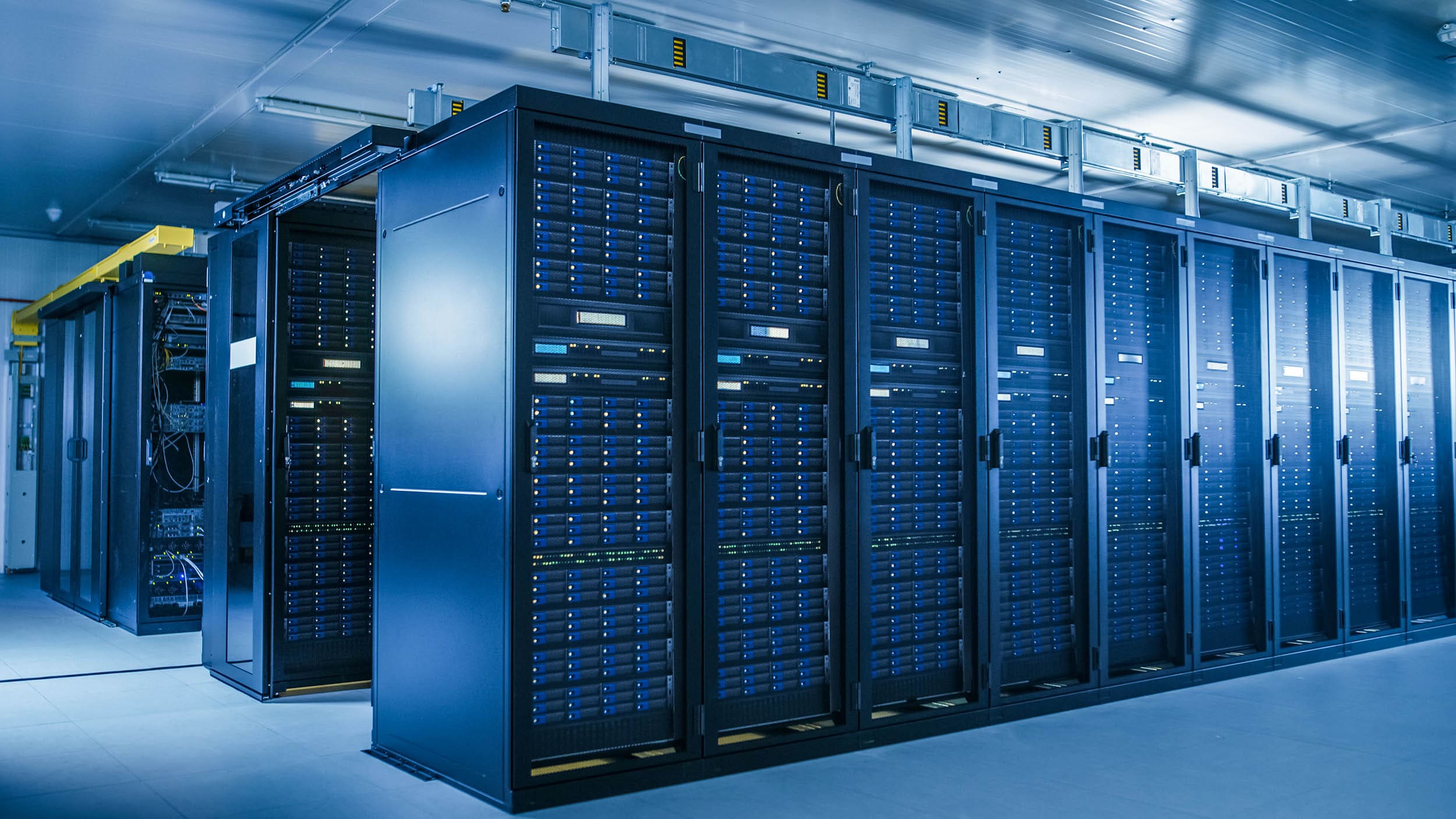Atlanta Is Now a Major Market for Data Centers
THE NEED FOR DATA CENTERS IS FUELING A NATIONWIDE CONSTRUCTION BOOM. AND ATLANTA IS EMERGING AS A PRIME LOCATION FOR THESE SPECIALIZED STRUCTURES.
Most of us think of warehouses as buildings that store physical materials. But today there’s a growing demand for “warehouses” that just store data. These structures typically contain an arsenal of servers, storage devices, networking equipment, and other IT-related items. All that equipment consumes vast amounts of electricity, so data centers need, above all, a robust, reliable power supply. To avoid damage to the equipment, these structures must also maintain consistent temperatures between 73 and 75 degrees Fahrenheit, so powerful heating and air conditioning systems are essential.
Beyond that, data centers simply need a lot of space. So, land prices are a major consideration for companies considering where to build. State and local financial incentives can also make a big difference. In all these things, Atlanta offers distinctive benefits for companies and prospective builders.

ATLANTA’S REMARKABLE RISE IN THE DATA CENTER MARKET
There are clear logistical reasons for Atlanta’s ascension as a major player in the data center market. Until recently, about half of the data centers in the United States were located in one of five metropolitan areas: Northern Virginia, Dallas, Silicon Valley, Phoenix, or Chicago. The rest were scattered in communities around the country that constituted the second-tier market: Austin, Boston, Charlotte, Columbus, Denver, Houston, Kansas City, Las Vegas, Miami, Minneapolis, Salt Lake City, San Antonio, and yes, Atlanta.
But Atlanta is now number six in the list of top data center markets—and gaining. One of the factors behind this shift is the ready availability of reliable power in Atlanta compared with other markets. Northern Virginia, the largest data center market in the Eastern U.S., has experienced power shortages, which are anathema to big tech companies. Against that backdrop, Atlanta looks very attractive indeed.
Land prices are also a major factor in Atlanta’s boom. While prices near Atlanta can be relatively high, the surrounding areas, still largely rural, are often very affordable. The cost of living in Atlanta is also attractive for potential employees, especially compared with that in Northern Virginia.

WHO USES DATA CENTERS?
Hyperscale companies are among the main entities that rely on data centers for their core business. These are firms that specialize in storing and processing data in huge quantities. They include companies such as Microsoft, Google, Meta, Apple, AWS, and TikTok. These tech giants need very large facilities, which they typically own or lease wholesale.
There are other companies for whom data storage and management are essential, but not their primary business. These firms often lease space along with other tenants in colocation data centers. Atlanta has excelled in that market, with projects such as the 1 million-square-foot QTS Atlanta Metro Data Center. In 2017, the tech builder Switch announced plans to build a 1 million-square-foot cloud campus in Douglas County. These are typical examples of the surge in colocation data centers springing up in the Atlanta area.
Atlanta is also emerging as a major host of facilities for hyperscale companies such as Google, AMD, and Blackberry. In 2018, Meta, the parent company of Facebook, announced plans to build a $750 million data center in Newton County.

THE TECH INDUSTRY TILTS TOWARD ATLANTA
This trend is not slowing down; if anything, it’s accelerating. The capacity of a data center is measured in megawatts (MW), not just square feet. And the communities that house data centers are assessed the same way. By that metric, Atlanta’s growth has been phenomenal,with 120 MW absorption in just the first half of 2023. New developers are entering the market, with plans to add more than 2 gigawatts of new construction in the Atlanta market. And pre leasing arrangements at colocation centers are surging.
In May 2024 it was revealed that Microsoft had purchased 161 acres south of Atlanta for its expanding data center campus. That makes 320 acres that the tech giant has purchased in the area since February.
Also in May, Swearingen Consulting submitted a Developments of Regional Impacts application to the Georgia Department of Community Affairs for a new development in Hampton, Henry County, south of Atlanta. The facility would occupy a massive 1.25 million acres, with a projected launch target of 2028. The details of the project, as well as the company behind it, remain unclear as of this writing. But Christy Swearingen, the founder of Swearingen Consulting, has previous connections with companies such as Amazon, Microsoft, EdgeConneX, and Oracle.
It’s clear that Atlanta’s emergence as a prime destination for new data centers is no fluke. The momentum is unmistakable and unrelenting. For major players in the tech industry, Atlanta is now a location of choice. And that promises to continue into the foreseeable future.
MORE THAN 2,700 PROJECTS AND COUNTING! FIND OUT MORE ABOUT OUR COMPANY
READ THIS NEXT
Stay up to date on the latest Rainwater Construction news and event – follow us on LinkedIn!


